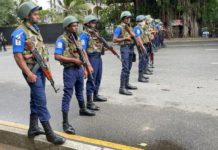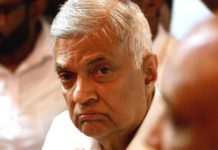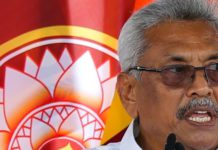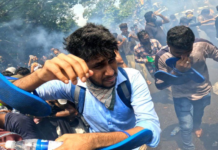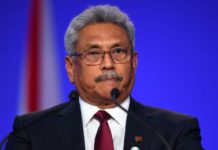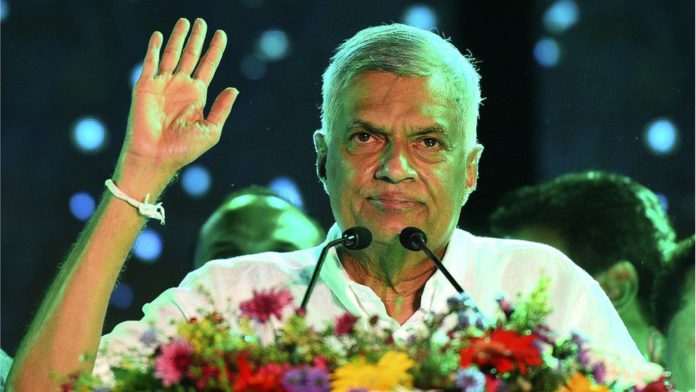
Sri Lankan President, Gotabaya Rajapaksa has appointed a new prime minister as he tries to defuse protests over his handling of a severe economic crisis.
Senior opposition MP Ranil Wickremesinghe was sworn in to lead a proposed cross-party government.
The move came after the president ignored calls to resign, and vowed to restore order in a national address.
Nine people have been killed and 200 injured in unrest since his brother resigned as prime minister on Monday.
During his nationwide address, Mr Rajapaksa said he would appoint a new prime minister who commanded the majority of support in parliament, as well as a new cabinet.
Mr Wickremesinghe has been on Sri Lanka’s political scene for decades – this will be his sixth stint as prime minister, although he’s never seen out a full term.
He is seen as being close to the Rajapaksas, and experts believe he has been chosen because he would be likely to guarantee their security and any safe passage they might request.
But he does not currently command much support within the opposition or among the public.
A nationwide curfew that shut shops, businesses and offices was lifted for a few hours on Thursday morning, but reimposed in the afternoon.
Sri Lanka’s economy is in freefall and people are desperate as basic items like food and fuel run out or become unaffordable.
In Colombo residents started lining up outside petrol stations even before the curfew was lifted. More vehicles could be seen on the roads as people rushed out to buy essentials.
News that Ranil Wickremesinghe is the new prime minister has been largely met with dismay and disbelief in Sri Lanka.
Mr Wickremesinghe, once a skilled tactician, has seen his public appeal steadily plummet over the years. In the last election, his once ruling United National Party managed to scrape together just one parliamentary seat, leaving him its sole representative in parliament.
One major reason for that has been his perceived closeness to the Rajapaksa family despite being in the opposition. Many people believe he helped shield them when they lost power in 2015 – his appointment now is seen as a way for the president to defy protesters’ demands that he quit.
It is being viewed as yet another arrogant response to weeks of protests.
Sri Lankans have criticised Wednesday night’s speech by President Rajapaksa, his first since protests began last month.
He offered to cede some of the presidency’s power to parliament, but set no timetable.
Those calling for him to resign were unimpressed and many said the speech failed to address the real issues.
“Where were you for the last 30 days? People don’t have medicine, people don’t have food, the entire country’s at a standstill,” Kavindya Thennakoon, a protester in Colombo, told the BBC.
“The reforms he’s suggesting are not what we need. What we need right now is for [the president] to resign from office… It baffles my mind that Gotabaya Rajapaksa doesn’t understand that.”

